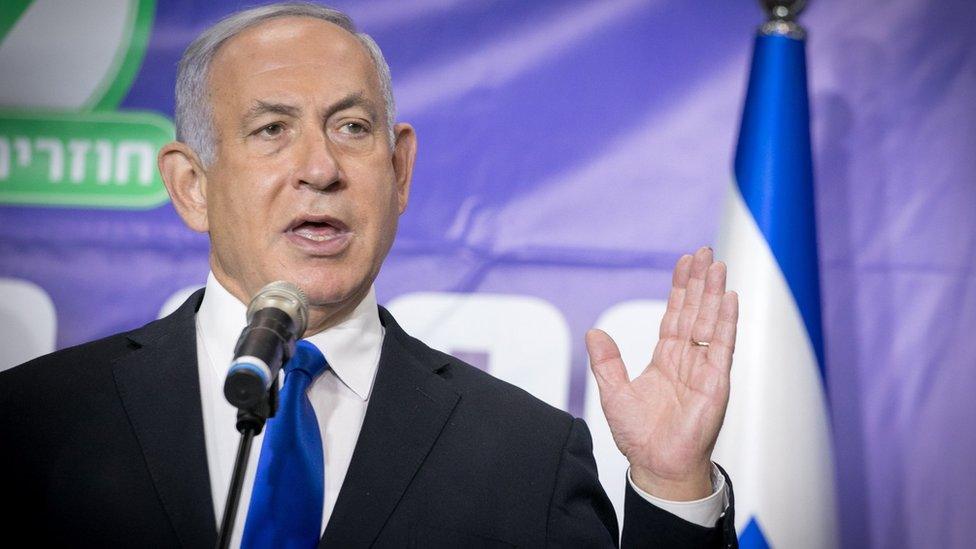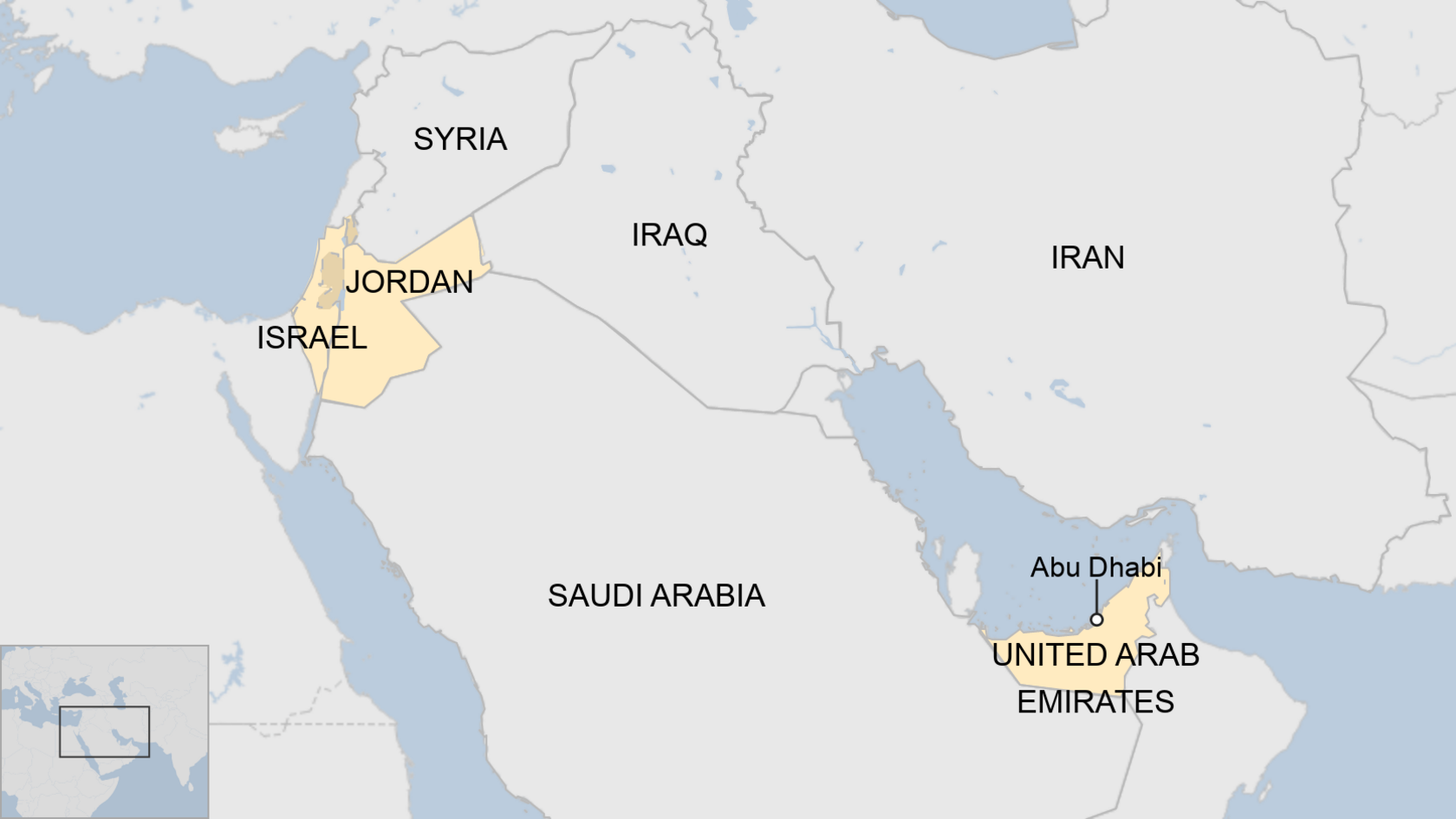Israel PM delays UAE visit after Jordan overflight 'difficulties'
- Published

Benjamin Netanyahu's visit appeared designed to give him a political boost before a general election
Israel's prime minister has postponed a historic visit to the United Arab Emirates because of "difficulties" in co-ordinating his flights over Jordan.
Benjamin Netanyahu was due to fly to Abu Dhabi on Thursday to meet its crown prince, Sheikh Mohammed bin Zayed.
But his office said authorities in Jordan held off granting permission to use its airspace for several hours.
The move "apparently stemmed" from the cancellation of a trip to Jerusalem by the Jordanian crown prince, it added.
On Wednesday, Prince Hussein bin Abdullah had planned to visit the Al-Aqsa mosque, which is part of the hilltop complex known to Muslims as Haram al-Sharif and to Jews as the Temple Mount and for which Jordan is the custodian.
But the royal delegation turned back at an Israeli-controlled border crossing as a dispute emerged about the number of armed bodyguards travelling with the prince, external, according to Israeli media.
Mr Netanyahu's office said there was "a dispute over security and safety arrangements at the site".
The BBC's Tom Bateman in Jerusalem says that, in what appears to amount to a deliberate snub from the Jordanians in response, there were then problems in co-ordinating Mr Netanyahu's flight through Jordan's airspace for his planned trip to the UAE.
The moves amounts to a significant diplomatic stand-off, he adds.
Mr Netanyahu's office said Jordan later offered to open its airspace to his plane, but that it was too late and the trip had to be postponed.

There was no immediate comment from Jordan's government on the overflight request.
But state TV quoted Foreign Minister Ayman al-Safadi as saying that Prince Hussein had cancelled the visit to the Al-Aqsa mosque because Israel had sought to change the programme in a manner Jordan considered harmful to the right of Palestinians and other Muslims to worship at the site.
"The crown prince did not want to allow Israel to impose restrictions on Muslims," he added.
(September 2020) Donald Trump on Israel-UAE-Bahrain deals: 'We mark the dawn of a new Middle East'
Jordan was only the second Arab state to officially make peace with Israel, in 1994, and relations have sometimes been rocky.
Mr Netanyahu's trip - which would be the first official visit to the UAE by an Israeli prime minister - appeared to be intended to give him a political boost before Israel's general election later this month.
The UAE is one of the four Arab countries that signed US-brokered agreements with Israel to establish full diplomatic relations last year. The others were Bahrain, Sudan and Morocco.